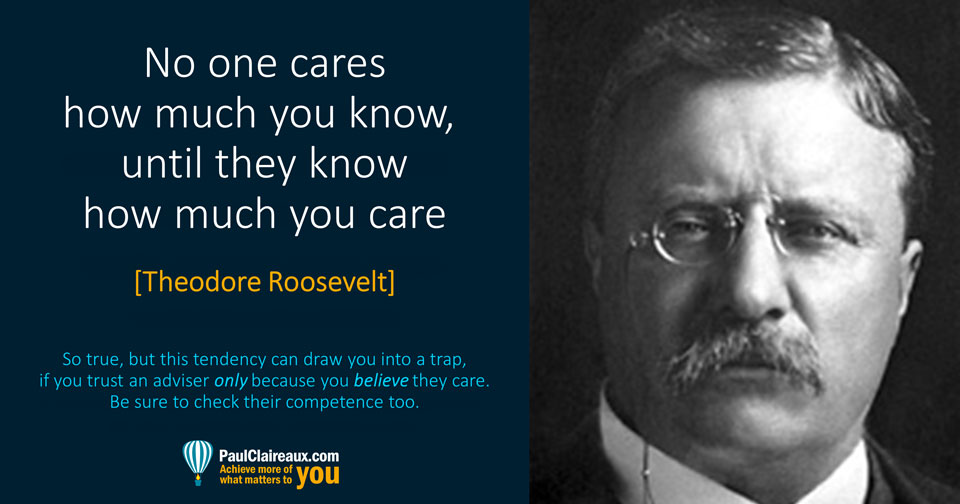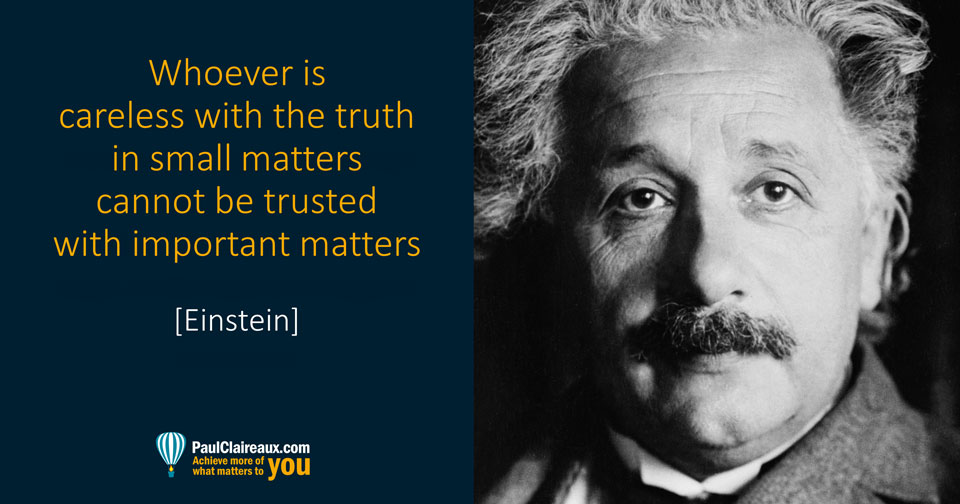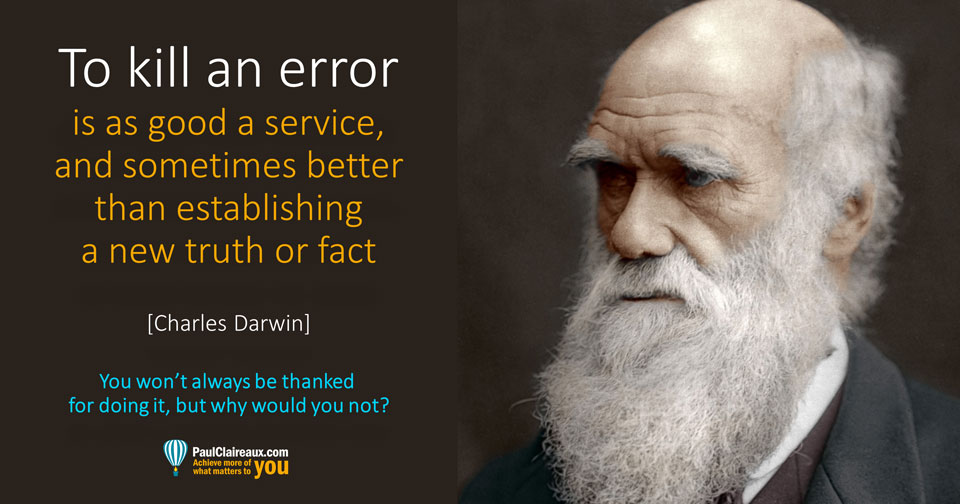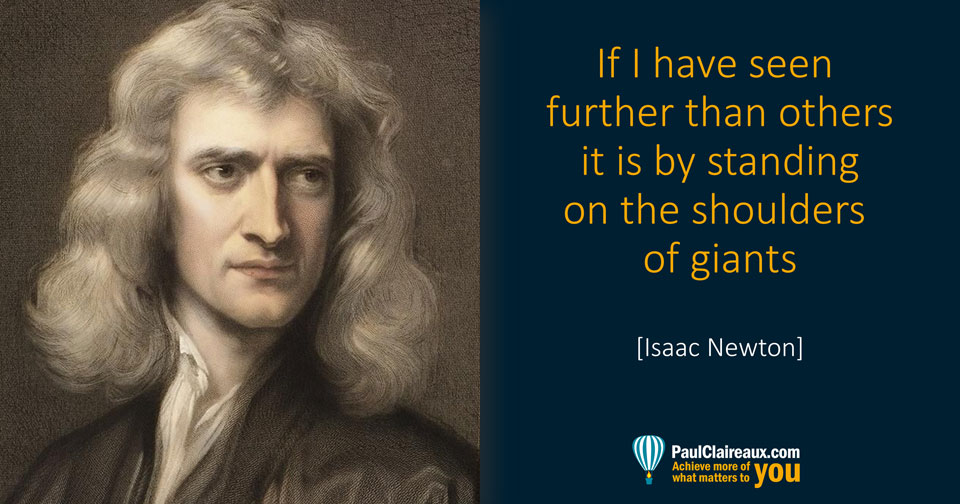Why confident people on the stage
might not be best qualified to be your sage

If you’re interested in personal development, you’ve probably been to a few seminars and seen a few confident gurus, standing on a stage, selling their ideas.
The question is, have you managed to work out which (if any) of these people (or more importantly, their ideas) are really worth following?
Being on a stage – does not make you a Sage
It might sound obvious but given the many thousands of people who get misled by ‘dodgy’ and dangerous ideas for personal development every year, I think this needs to be said …
No one is qualified to be your sage,
just because they stand on a stage
To have a good chance of success – you need a good team behind you.
Or, as Jim Collins, author of ‘Good to Great’ said in his book,
Get right people on the bus,
the wrong people off the bus,
and the right people in the right seats.
So, who can you trust for guidance on your personal performance?
Who are the people who really care about helping you?
Who wants to help you to fit the truths about your personal situation and ambition to the truths of the world?
Indeed… who really cares about the truth?
Well, it’s not necessarily someone who got lucky in life or in business as we saw here.
We all know the world is full of fake news and misinformation.
But we don’t always see all the people who get hurt by it, because we’re blinded by something called survivorship bias.
It’s quite simple really … most people tend to hide their mistakes.
So, we only see winners in games of chance – and the losers sneak away by the back door.
 What’s more, the literally shocking research clearly shows that we’re naturally inclined to trust what people tell us when they appear to be an authority.
What’s more, the literally shocking research clearly shows that we’re naturally inclined to trust what people tell us when they appear to be an authority.
So, we might believe, for example, that because someone has hired themselves a stage (or been invited onto one by the person who runs the show!) that they are the authority on their subject matter. But oh dear, how wrong this can be.
Watch out for the ‘care’ trap
Now here’s a clever trap that catches out a lot of people.
You see, most successful sales presenters know that it’s not really the content of their presentation, that engages and attracts us.
Indeed, too much, high-quality content can even get in the way of building trust with many audiences, especially those who are hungry for quick and easy answers.
What wins us over as an audience is whether we’re persuaded that the presenter really cares about us. And once we’re ‘sold’ on that, we tend not to check their credentials (or the validity of their ideas) too carefully!
This is a very old idea.
And it’s really just an extension of this brilliant observation from Roosevelt.
Or, as I tend to put it,
No one cares how much you know …
as long as they think that you care!
Sadly, a lot of snake oil sellers take advantage of this fact, and whether we’re working on our health, wealth or personal performance, we need to be on our guard to this trick.
We need to think harder about who we can trust for good guidance.
In a nutshell, we need to follow the people whose work is grounded in evidence or solid science.
Of course, I’m not talking about rocket science here, although it’s worth remembering what this rocket scientist said about the importance of science and ‘truth’.
Fake News is Old News
To get this in perspective, we’ve always had misinformation – and this problem was a lot worse in the past.
Let’s remember that our leaders used to burn people at the stake for trying to challenge the silly religious rules of the day!
Nowadays, it’s only a tiny minority of lunatics who kill people for refusing to follow a warped religious idea, and we’re hopefully now getting to grips with those groups.
Our wider but easier fights today are against fake news on other issues, where the risks of being misled are to our general health, wealth and well-being.
So, ‘fake news’ is nothing new; it’s just easy to access in this digital age. And we’re more aware of it because it’s a (relatively) new phrase.
That said, simply knowing that fake news exists does not mean we know how to spot it, and many people clearly struggle to do so.
Yes, we’re making some slow progress to educate people on the widespread nature of misleading information – and the message is getting through in places.
According to a recent Edelman Trust Barometer, our trust in Social Media platforms has plummeted in recent years, while the trust we put in real experts is on the up.
Let’s KILL these errors
When it comes to fake news, this sort of checklist can certainly help.
And the value of fact-checking is summed up by Charles Darwin here.
But we still have a way to go.
Finding errors in information involves hard brainwork which, as you might guess, is something we generally avoid 🙂
In 2019, in our, so-called, ‘information age’, would you believe that there remains c.40% of the US population that deny Darwin’s proven science of evolution?
Yes, and incredibly, in many US states today, they still teach their children that humans were placed onto the earth, in their present form, by God! And when you’re taught this stuff at school (and at home) … it’s painful to accept that these ideas are untrue.
So, you tend to hang on to those ideas longer – a lot longer – than you should.
I don’t know about you, but I suspect Darwin would be shocked and saddened to learn this.
The good news and hope for the future
The good news is that we have a lot of intelligent people in our world.
People who ignore the stupidity, and the crooks and the misleading adverts and those attention-grabbing but misleading headlines in the press, and quietly get on with the work of making the world a better place.
So, despite all that fake news noise, and the wars about who controls what and which religions we should follow, the world has made enormous progress over the past 200 years.
Here’s the evidence for this: (you’ll have gathered by now that I’m really keen on evidence)
Oh, and you can find more detail behind these charts here
How have we made this progress?
Well, because we’ve used solid science, and while we still have plenty of problems in the world (including those of our own making – like global warming) I’m hopeful that we’ll find the technological (and behavioural solutions) to clear up the mess we’ve made.
We just need to get over our ridiculous tribal belief based fighting. And get on and make our world a better place, for our children and our children’s children.
I really don’t fancy the alternative, of escaping planet earth on a rocket ship to the hostile red planet of Mars with Elon Musk, do you? 😉
Which brings me nicely to an idea from Isaac Newton
Let’s stand on the shoulders of giants
Isaac Newton, as you probably know, came up with the laws of motion – in his Mathematical Principles of Natural Philosophy.
Newton published these laws of Physics more than 330 years ago in 1687, and yet his laws eventually enabled us to put men on the moon and bring them back safely to earth.
Now there’s a piece of work that’s stood the test of time, at least at the earthly scales; Quantum and Astrological Physics are quite another story!
But rather than delve into Newton’s physics let’s just take his advice on how to learn, and how to advance our understanding of all things, by standing on the shoulders of giants.
If we’re to take our personal performance and motivation seriously, Newton’s approach is essential.
We need to seek out the ideas of those (typically quiet) people who are the world’s leading experts in the subjects we’re studying.
And the really good news is this
The ideas of these world experts are much more accessible today than they ever were in the past.
You can read (or listen to) their brilliant books on their proven ideas, and you can even watch their TED and other talks online.
But you can only do this if you know the right people to follow – and they’re unlikely to be the ones you expect.
So, I’m not talking about the likes of Tony Robbins or Brendan Burchard or Rhonda Byrne (author of ‘The Secret’) or Esther (Abraham) Hicks here.
Goodness me no!
Indeed, the evidence about their work suggests a need for some very big wealth and health warnings.
You should certainly be aware that ‘just believing you can do it’ will not, necessarily, stop you burning your feet if you do the firewalk at one of Tony’s gigs 😊
If we try to live our lives according to random sets of “beliefs and claims” that have NO basis in fact, we’re at serious risk of coming to more harm than good.
Sadly, this is what many tens of thousands of people do with their lives.
So, why do we follow over confident gurus?
Well, we do this because we’re ‘human’.
Because of our natural but troublesome behavioural biases, and at least two of these biases are at work when we’re misled by a guru.
Second, we like to follow people with super levels of confidence.
And, if you need evidence on that, just look at some of those silly ‘belief system’ leaders I’ve mentioned above… or some of our most powerful world leaders!
Seriously, what else do some of these people have – other than an abundance of confidence?
Four real gurus worth following
Now, I really do want to help you achieve more which is why those words are in my logo.
The problem is, we simply cannot achieve more in our lives, if we waste our time in the rabbit holes of ridiculous ideas – that are everywhere today.
So, please just remember this:
No one has earned the right to be your sage, just because they’re confident or they stand on a stage!
Unless the ideas you follow have solid evidence to back them up, you risk wasting an enormous amount of your time and your money on them, and I really don’t want you to do that.
If you liked this Insight, try this one also – where I outline how changing three words you use every day could literally change your life.
Of course, the ideas are based on solid evidence from world-leading authorities on personal performance. So, check that one out when you’re ready.
Thanks for dropping in
Paul
For more ideas to achieve more in your life and make more of your money, sign up to my newsletter
As a thank you, I’ll send you my ‘5 Steps for planning your Financial Freedom’ and the first chapter of my book, ‘Who misleads you about money?’ Also, for more frequent ideas – and more interaction – you can join my Facebook group here
Also, for more frequent ideas – and more interaction – you can join my Facebook group here
Share your comments here
You can comment as a guest (just tick that box) or log in with your social media or DISQUS account.







Discuss this article